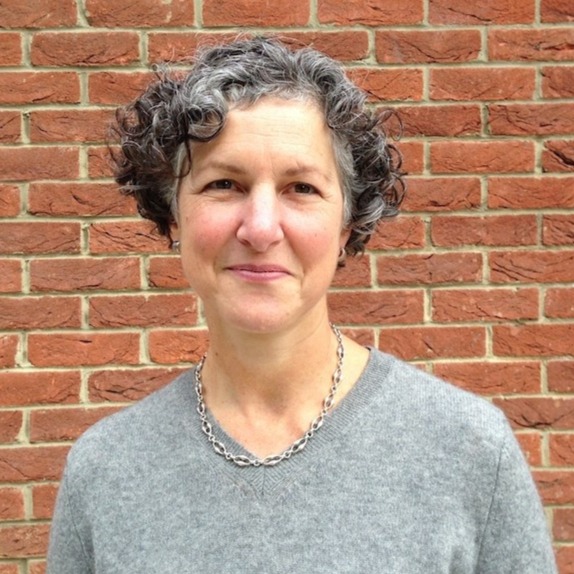CESI Profiles
We are showcasing the diverse range of expertise of the academics of CESI in a series of discussion-with sessions. In this first in the series, we speak with newly promoted Professor Simone Abram, CESI Co-Investigator.
Professor Simone Abram is Durham Energy Institute’s Co-Director for Social Sciences and Health and a Professor at the Department of Anthropology at Durham University. Her research has brought together science studies and governance, through studies of tourism, urban development and land-use planning. Simone’s energy interests lie in relating different disciplinary perspectives on energy and society, including the governance of energy developments, recent transformations of energy markets, ethical questions in energy modelling, and the changing social and political significance of energies, particularly electricity.
Durham Energy Institute’s Co-Director for Social Sciences and Health and a Professor at the Department of Anthropology at Durham University. Her research has brought together science studies and governance, through studies of tourism, urban development and land-use planning. Simone’s energy interests lie in relating different disciplinary perspectives on energy and society, including the governance of energy developments, recent transformations of energy markets, ethical questions in energy modelling, and the changing social and political significance of energies, particularly electricity.
Simone is a member of the European PERSON network for social sciences in energy research and co-convenes the European Energy Anthropology Network.
Email: simone.abram@durham.ac.uk
Can you tell us about your career path to Professor?
I graduated with a BSc/MEng in Electrical and Electronic Engineering from Manchester University in 1988. I was sponsored by GEC Turbines and worked for the company during the summer months. The degree program was very broad covering History of Industry, Philosophy of Science and Law, in addition to more traditional engineering subjects. In my 4th year project I investigated cable insulation breakdown. As a result, I was invited to work towards a PhD in this area.
Through my work at GEC Turbines, I had become very interested in the effects of the construction of power stations in “remote” areas of the world. Instead of a PhD in engineering, I applied for an MSt in Social and Cultural Anthropology at the University of Oxford. I stayed at Oxford to carry out my PhD on history and heritage the Auvergne, France. After my PhD, I took a a Post Doc position at Newcastle University working with the Centre for Rural Economy on a project investigating the representation of the Middle Class in planning decisions. I then gained a fellowship at Cardiff University continuing looking at the representation of social groups in the planning process from the point of view of Deliberative Democracy. Throughout, I was in contact with fellow researchers in Norway and I was invited to be a visiting researcher at the University of Oslo.
My first permanent lectureship was at Sheffield University in the Planning Department in 2000, and I later became a Senior Lecturer. I joined the Department of Anthropology at Durham University in 2013 to set up their new MSc in Energy and Society, becoming a co-director of the Durham Energy Institute soon after, and I was promoted to professor in 2017.
What do you most enjoy about your teaching role?
I enjoy teaching collaboratively and encouraging the students to learn together. I really appreciate the engagement with the students, and learn from them as well as facilitating their learning.
What does your day-to-day role as a Professor involve?
It is a very busy schedule. Today I will be involved in a number of things:-
- teaching and planning teaching material; today I am carrying out a review and planning next year’s MSc Energy and Society curriculum
- reading and commenting on a PhD thesis chapter
- responding to a publisher’s review of a book I have written
- meeting with the Project Administration team of the National Centre for Energy Systems Integration
- Meeting with my CESI Post Doc RA
- Departmental administration tasks around student recruitment
- Meeting with external partners – today it’s representatives from local government
- Preparing a research funding application
- Attending a guest lecture by a distinguished academic
- And of course … keeping up with emails!
Would you share some top-tip advice to anyone considering becoming a Professor?
I don’t envy anyone setting out on this path today, as conditions in academia are getting harder and harder. I never set out to become a professor, but see it as a recognition of some of the things I’ve been able to achieve. There are a few lessons I have picked up along the way, though.
- Remember that universities are institutions, and that if you want to get something out of them, you have to find your way through the rules – and the unwritten rules. On the other hand, I wouldn’t be steered by institutional hurdles – jump them if it suits you, but there are more important things in life.
- For women in particular, you have to put yourself forward and not be too modest.
- There’s no point in doing research that no-one needs – communicate it to industry and government if you can, as well as to students and academics – in a language they can understand, if possible, enjoy!
- It’s up to you to look for opportunities for research funding and collaborations – they won’t fall into your lap unless you have done the groundwork.
- Treat colleagues with respect, maintain your enthusiasm for research, but don’t put up with bad behaviour. I have had to speak out about bad practice on a number of occasions, but it hasn’t held be back in the long term. If everyone did the same, we’d all be better off.